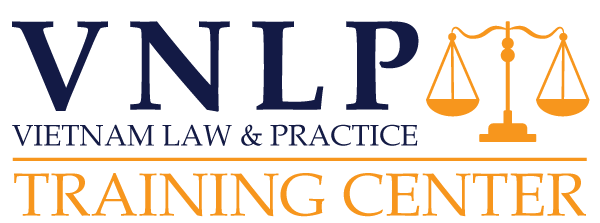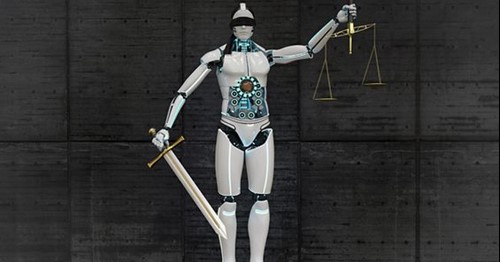How has technology changed the legal profession?
Technology has profoundly penetrated every corners of the world’s business and rapidly changed lives. Legal profession is not out of that trend. Technology is one of three factors that change the legal market [1]. Technology fundamentally changes the constitution and structure of traditional legal market, thereby changing the way lawyers work and handle jobs and provide legal services to clients.
Firstly, technology creates electronic legal market, e-learning, online legal guidance, online dispute resolution, document automation and analysis.
Following that, technology would automate many professional activities of lawyers. According to McKinsey Global Institute’s report in 2007, less than 5% of jobs would be totally automated, meanwhile, one third of about 60% of jobs could be automated[2]. In the legal sector, these changes are inevitable. Some tasks which lawyers perform could be no longer exist, including repetitive or procedural legal work (obtaining a permit, tracking expired license/permit); drafting simple contracts (including Labor contract) with standard terms; answering legal questions automatically; and doing legal research. In contrast, technology, namely Artificial Intelligence, would create new jobs in legal sector, such as legal knowledge engineer, legal data scientist, online dispute resolution practitioner, legal process analysis. New legal-related services would also appear, namely, major legal publishers, legal know-how providers, legal leasing agencies, online legal service providers, legal management consultancies, and legal tech companies.
In a recent study[3], there would be four career groups that could be affected by the change of technology, namely Artificial Intelligence: (i) Human veneer, including: teachers, doctors, tour guides, financial advisers, tutors; (ii) Safe zone, including criminal lawyer, executive director, public relations director, IT service analyst, neurologist, volunteer; (iii) Slow creep: commentator, data scientist, graphic designer, scientist, artist, medical research, legal and financial analyst; and (iv) Danger zone: Interpreters, junior programmers, telemarketers, database managers, customer care workers, X-ray doctors, personal tax preparers. Among these four groups, the legal profession group is slowly affected, taking place steadily and each country’s changes take place with different pace and dimension[4]. Countries which have developed technology and legal backgrounds, such as the UK, the United States and European countries are at the forefront and have witnessed the most dramatic changes in legal field. In Singapore[5], some technology companies and law firms have begun to care and build AI platforms and blockchain into the legal field. Some startups in cooperation with some law firms in Malaysia have gone to Vietnam to introduce will-drafting model built on the blockchain platform and want to commercialize in Malaysia and Vietnam. In Vietnam, the transformation shift has been pretty slow and backward in Vietnam legal market. There are some start-ups in this field have begun to applied technology in legal field, which is simple legal tech, such as creating a connection channel between lawyers and clients. These start-ups have not been able to exploit and apply AI to legal services in the professional tasks that lawyers are handling on day-to-day basis for customers.
Technology is an inevitable trend but people are always more important
Technology has and would change legal sector but do lawyers really lose their job or have to worry about the ongoing changes of technology? The answer is not that bleak.
Overall, technology would replace few previous jobs but it is a small percentage, meanwhile, the feature of job would change completely. In other words, newly-created job opportunities outnumber the jobs taken by the AI. Moreover, no matter how smart the AI is, it can never replace the role of human. Technology cannot replace human, specifically it cannot negotiate effectively, cannot encourage people, and cannot comprehend what is going on in complicated society, cannot take charge and lead the people in the direction it wants[6].
In the digital era, every occupation is affected by science and technology. We should appreciate and believe in the innovation of science, science and technology would be the power to bring improvements upon other fields, protect future generations and help us go through doomsday[7].
To always be in charge of your own life and be successful in what you love to do, especially in legal profession, we need to see the positive factors that technology brings, utilize technology effectively, so that technology can best serve the advancement of your legal career. Besides, anybody who is passionate about legal field must always think globally, connect constantly, especially learn and be equipped with leadership skills in order to be the master of your life, be successful in your job and, further down the road, become an excellent and reputable leader[8].
This article was published and available at https://www.thesaigontimes.vn/286427/cong-nghe-co-that-su-lam-luat-su-mat-viec.html
[1] Richard Susskind, Tomorrow’s Lawyers, 2nd edition,
[2] McKinsey Global Institute, A Future That Works: Automation, Employment, and Productivity
[3] https://www.hoover.org/research/chinas-rise-artificial-intelligence-ingredients-and-economic-implications
[4] IBA Global Insight, February/March 2016
[5] https://www.channelnewsasia.com/news/singapore/lawyers-law-sector-disrupted-technology-artificial-intelligence-11145088?cid=FBcna
[6] Brynjolfsson E, McAfee D. 2014. The Second Machine Age: Work, Progress, and Prosperity in a Time of Brilliant
Technologies. New York: W.W. Norton
[7] Philip R Wood, the Fall of the Priests and the rise of the Lawyers, 1st ed, 2016
[8] Adam Newhouse, E-lawyer – A guide to legal practice leadership in the internet age
- Future outlined for BOT projects on back of PPP Law - 26 August, 2021
- Vietnam, Middle East seek new approaches in investment cooperation - 26 August, 2021
- Internet Lending in Vietnam: Is There a Need for a Legal Framework? - 8 July, 2021

